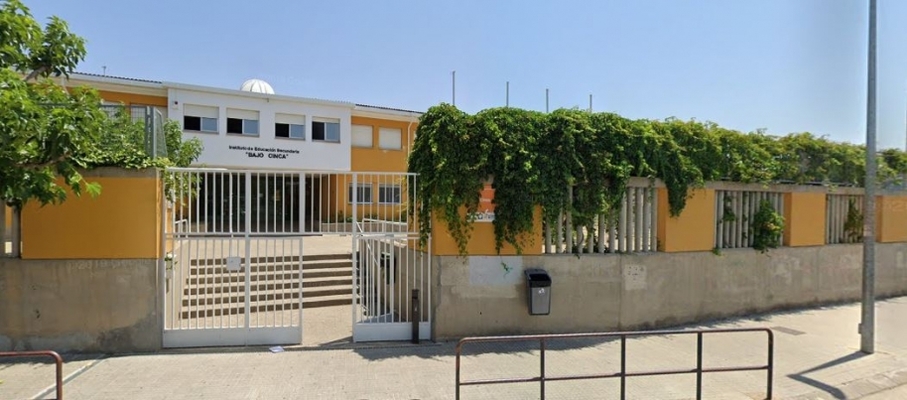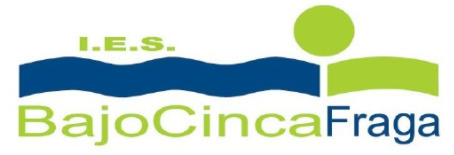
Find Us:
 VISIT OUR WEBSITE
VISIT OUR WEBSITE
IES Bajo Cinca is located in Fraga (Aragon), a town of 15,033 inhabitants, capital of the Bajo Cinca region (pop. 24,828). It’s is located in an area of irrigated commercial agriculture, with the presence of different family companies & some multinationals. The service sector, however, is the most important.
The high school has 70 teachers & 512 students & offers ESO (compulsory secondary education) Bachillerato (post compulsory secondary education) & vocational training. Since 2013 the school has offered a bilingual program in English where students study other subjects in English (Maths, Biology and Geology, Geography & Ethics).
In recent years, the school has developed a growing internationalization. It has carried out two Erasmus+ KA1 projects (2015- 2019) & is currently carrying out a third (2019-2021). It has hosted visiting job-shadowing teachers from Sweden and Poland. A team of Erasmus teachers meets regularly to manage these projects guided by two international project coordinators. Vocational Training is also involved in Erasmus+ projects with a KA102 and a KA103 coordinated by the “Consorcio Aragón en Europa”
(body which looks for business in Europe for Aragonese students). We have sent and will send students to Ireland, Poland and France. This part of the school has also been awarded with the “Erasmus Chart”.
The school is working hard on inclusion of students with special educational needs, through PTs (special needs teachers) within the classroom, through official inclusive programs of groups of students with those needs, which aim to enhance their selfesteem, motivation and capabilities and through mediation programmes which foster to improve the coexistence of students within the high school. Our programs “Big Brother”, “Students’ Helpers”, “Emotional Tutoring”&“Antibullying Monitoring Commision” have been implemented in order to improve the school climate. As a result of that, in the past few years we have noticed conflicts have decreased considerably.
Coming from an agricultural area where most families own a piece of land, grow their own vegetables and cook their meals at home, we want to share our idea of sustainability (promoting proximity agriculture) by growing our own products & homemade cooking. We would like to learn about other aspects involved in sustainability by incorporating different knowledge such as sustainable architecture & the way other countries connect with their environment & surroundings. We want to offer our students the chance to interact with other European students to improe their communicative skills as well as to broaden their European awareness.